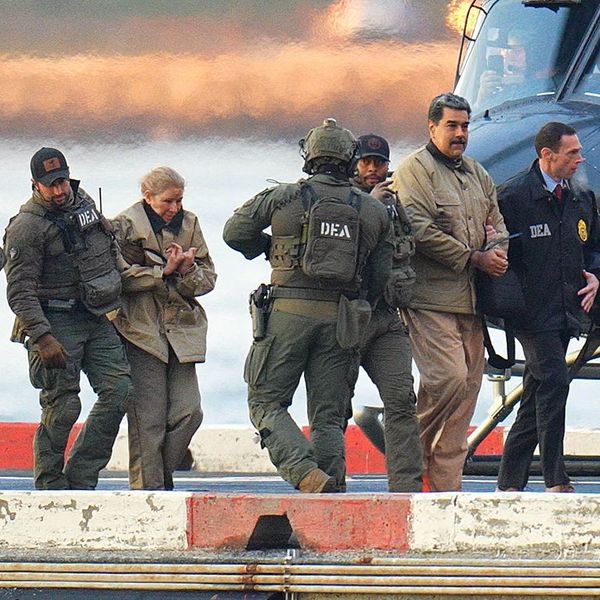Bottom Line Up Front
- On February 10, U.S.-backed forces surrounded the Syrian town of Baghouz Al-Fawqani, the ‘last’ remaining stronghold of the so-called Islamic State.
- President Donald Trump expects to make a formal announcement declaring the ‘official defeat’ of the Islamic State, which could come as early as this week.
- Declaring victory over the Islamic State could backfire, as resources are shifted elsewhere, the militant group will seek to rebuild in Iraq and Syria.
- Only with effective and fair governance and an inclusive society that respects minority rights can groups like the Islamic State be defeated long-term.
The fight against the so-called Islamic State is entering a new phase. With the group’s last remaining vestige of land in Syria captured by U.S.-backed forces, the territorial caliphate has been completely retaken. Yet the Islamic State’s message still resonates with its followers worldwide, and the group will continue to push its narrative through a constant stream of deliberate and effective propaganda. Moreover, during its power, it established several highly capable affiliate and franchise groups, including in Egypt’s Sinai Peninsula, Libya, West Africa, and Afghanistan, to name a few. Even where the group does not maintain official wilayats, as in the Philippines, it still boasts a strong connection to militants acting on its behalf.
In December 2018, President Trump flatly declared that the Islamic State was defeated and stated that U.S. troops would soon be leaving Syria. Two months later, there remains a serious disconnect between the President’s statements and the assessments of his most senior military, intelligence, and foreign policy advisors, all of whom who have stressed that the fight against the Islamic State is far from over. Just last week, CENTCOM Commander General Joseph Votel testified before the Senate Armed Services Committee that ‘the fight against ISIS and violent extremists is not over and our mission has not changed.’ Many have sought to shape a declaration of success within a strict territorial framework. And while reclaiming territory from the Islamic State was necessary—the group once controlled a physical space the size of Great Britain, with 8 million people under its sway—it is not sufficient to make lasting and sustained progress in combating the group.
A premature declaration of victory will only serve to offer a false sense of security while showing that the United States remains out of touch with realities on the ground. American credibility in the region has already suffered a severe blow now that the U.S. has seemingly abandoned the Kurds, arguably the most effective and reliable fighting force in the broader Coalition to Defeat the Islamic State. Most keen observers of the conflict point out that the militants linked to the Islamic State will remain a serious threat to Syria and Iraq for the foreseeable future and several serious issues remain unresolved, including what to do with captured foreign fighters and their families. With the impending U.S. military drawdown, pressure on the last remnants of the insurgency will ebb as the group is diminished militarily, and then the U.S. and others, in conjunction with the Iraqi government, will launch periodic strikes as necessary.
The real battle against the Islamic State is about a long-term defeat of their ideology. There have been several other occasions where the group’s death knell has been predicted, only to have it rest, recuperate and resurge to conquer new territory; true defeat must go beyond simple military successes. The Islamic State flourishes in areas where governments are weak, borders are porous, and survival is paramount. In these areas, often times sectarianism is rampant and minority groups must seek protection from armed groups to avoid being abused and mistreated. To be sure, the narrative of ‘bin Ladenism' is still a significant draw for jihadists and their would-be supporters, even as that narrative might be interpreted differently in certain regions, according to specific contexts. To truly fight the Islamic State, and to achieve sustainable progress, the international community can turn to the work produced by, among others, the United Nations Security Council Counter-Terrorism Executive Directorate. By following best practices and lessons learned, including the Madrid Guiding Principles, a practical tool for Member states to stem the flow of foreign terrorist fighters, the international community can prevent this phenomenon from occurring again, and help move toward creating resilient societies.














